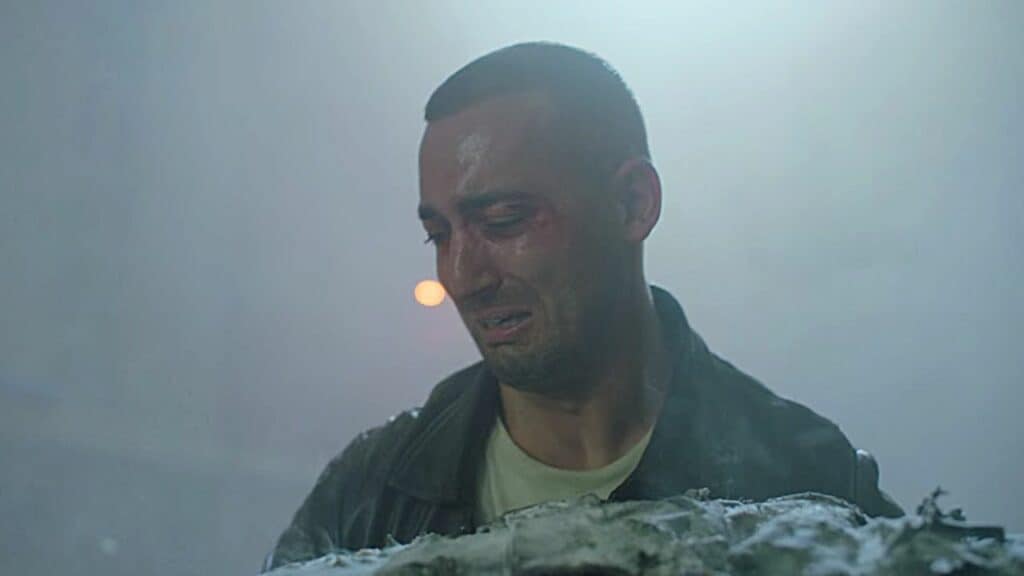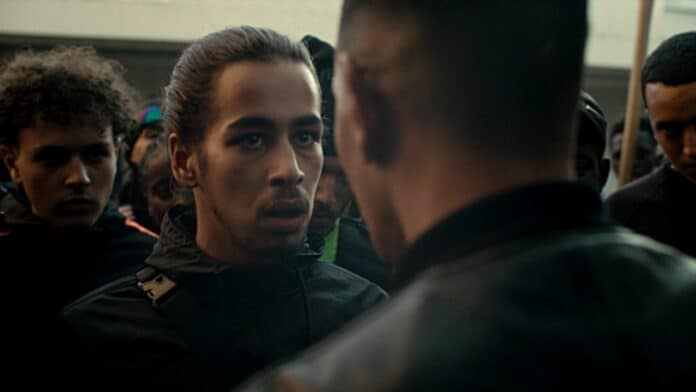Athena is a French social issue drama directed by Romain Gravas that is a modern-day depiction of the classic Greek tragedies of theatre. The film is now streaming on Netflix.
Greek tragedies are part of some of the earliest forms of performances on stage that followed a set of conventions and a particular structure for it to be considered a tragedy. ‘Athena’ not only draws its title from the Greek goddess but its story includes themes derived from classic works of Aeschylus, Sophocles and Euripedes.
Tragedies generally consisted of a hero or heroine who is morally good but at the same time they were not without flaws and that flaw would often lead to their downfall as well the downfall of the people around them. There are also themes of family discourse, justice and catastrophe within society in traditional tragedy.
The various inspirations in Athena
‘Athena’ revolves around three brothers and their reaction to the death of their youngest sibling in a case of police brutality. The youngest brother, Karim, is the most enraged of the three and chooses the path of violence to get justice.
The oldest brother, Moktar, is more focused on his criminal activities and how he can protect himself amidst the chaos in the estate. He is barely affected by his brother’s death and has more selfish thoughts occupying his head.
The middle brother, Abdel, is a soldier in the army who has just returned from a foreign assignment and is the only one who exhibits neutrality in the situation, initially waiting for the police to finish their investigation before forming a concrete opinion.
The three of them butt heads with each other at various points in the film and when Karim is killed by some cops, Abdel undergoes a complete shift in demeanour and even kills Moktar in anger for his part in the situation as those cops were corrupt and came to extract Moktar and his men.

Even the title, Athena, belongs to the goddess of war and was the patron and protector of the city of Athens. Athena is generally attributed to justice as she acts as a judge in the first-ever courtroom scenario taking place in the tragedy Eumenides by Aeschylus.
Justice is a major theme in the movie as it is the primary motivation behind the actions of Karim and later, Abdel. Eumenides also includes feelings of anger at the death of a family member which is a key component of the film.
Other films based on Greek tragedies
Several other filmmakers have taken inspiration from the classics to capture the essence of Geek tragedies within modern cinema such as Sophie Deraspe, Yorgos Lanthimos and Pier Paolo Pasolini.
Deraspe’s ‘Antigone’ (2019) is based on Sophocles’ tragedy of the same name which follows a young girl whose brother is suddenly arrested, forcing her to come up with a plan to take his place. Even though the story slightly diverts from the source material, there still exists general themes of family loyalty and self-sacrifice.
Lanthimos being a Grecian himself decided to adapt Euripides’ tragedy ‘Iphigenia at Aulis’ for his film ‘The Killing of a Sacred Deer’ (2017) in which his protagonist, Steven (Colin Farrell) is forced to make a huge sacrifice that significantly affects his family much like in the original narrative.

Pasolini chose Euripides’ tragedy ‘Medea’ as inspiration for his film of the same name (1969) which is a tale of revenge that is largely faithful to the original structure of the play.
Also Read: Athena (2022) review: Riveting, immersive & exquisitely shot

